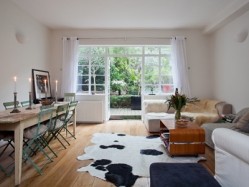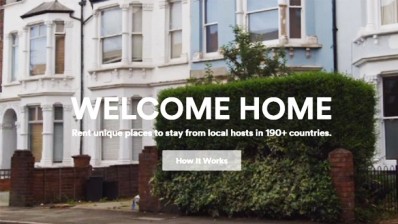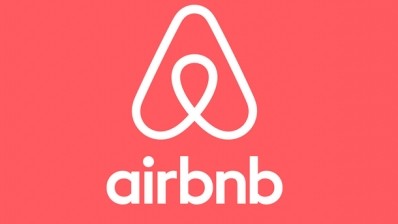Airbnb does not pose major threat to hotels, say experts

Airbnb has seen a meteoric rise in a fairly short period of time and has processed over 10 million bookings around the world since its launch in 2008, giving rise to concerns over the impact it - and sites like it - will have on hotel revenue.
Euromonitor International’s Top 10 Global Consumer Trends For 2014 report warned that ‘home-sharing holidaymakers are challenging the global hotel industry’ and a recent study by Boston University’s School of Management found that a 1 per cent increase in Airbnb bookings in Texas resulted in a 0.5 per cent decrease in local hotel revenue.
However, Michelle Grant, Travel and Tourism research manager at Euromonitor International told BigHospitality that home-sharing sites pose only ‘a small threat’ to the hotel industry.
“I think that the industry may see a few business and leisure travellers shift to this type of accommodation, for the lower price and unique experience,” she said. “But both have two different types of business models so I don’t think the leakage will be significant.”
Hotel consultant Melvin Gold agreed, pointing out that hotels offer a very different experience to private self-catering apartments, which dominate Airbnb listings. “Sites like Airbnb are obviously here to stay but I don’t see them as a big threat to the hotel industry. I think there is plenty of room for both in the market,” he said.
Protecting against threats
The Boston University study concluded that Airbnb disproportionately impacts lower end hotels, which offer less amenities and services.
However, Gold said smaller hotels and B&B's could potentially use services like Airbnb to their advantage. “It is another route to market and if the customers are there, B&Bs and hotels will find their way to listing there,” he told BigHospitality.
Grant said that no matter what their price point, hotels could protect themselves against potential threats by ensuring they meet or exceed their customer expectations.
“Well designed, clean facilities along with excellent service should be standard,” she explained. “Everything about the hotel business is transparent online now so it is easy for guests to choose them, their competitors or a different lodging model.”
Future regulation
Speaking to the Sunday Telegraph recently, InterContinental Hotels Group (IHG) chief executive Richard Solomons pointed out that renting through sites like Airbnb is currently relatively unregulated. He said governments should apply the same rules on health & safety, security, cleanliness and tax to online businesses as hotels to ensure traditional hospitality businesses are not left at a ‘disadvantage’.
His views are shared by some regulators, with local authorities in New York and Berlin cracking down on Airbnb rentals in their cities.
Airbnb has made some moves to improve the standard of its rental properties and recently appointed Chip Conley, founder of boutique hotel company Joie de Vivre Hospitality, as its head of Global Hospitality.
Conley is charged with creating cohesive standards for hospitality – including host response times, listing accuracy and cleanliness – to apply across its global network of over 500,000 listings.
“Hospitality is at the very heart of what we do at Airbnb. When people think about the meaningful experiences they've had through Airbnb, their hosts’ warm welcome or thoughtful gestures are always at the core,” said Brian Chesky, Airbnb chief executive.
















